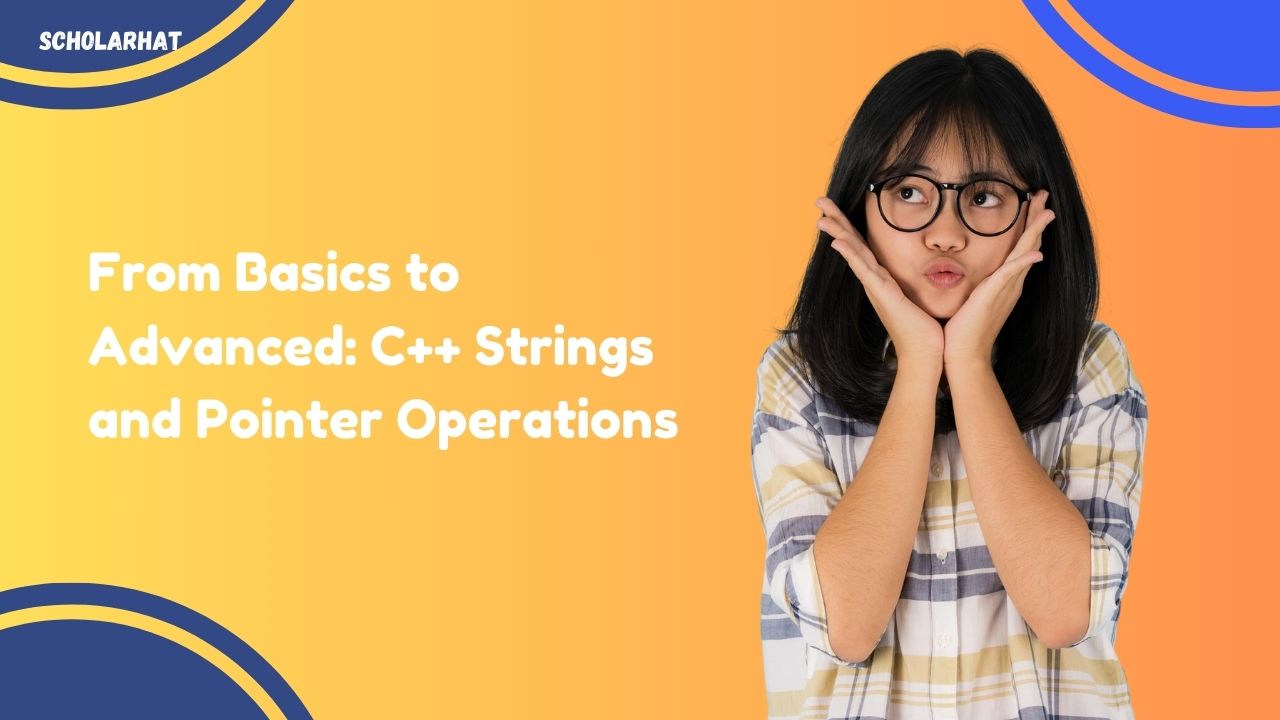In C++, mastering strings and pointers is crucial for effective programming, especially when dealing with memory management and data manipulation. This comprehensive guide covers everything from basic string and pointer concepts to advanced operations, providing a solid foundation and enhanced skills for programming in C++. Understanding these elements deeply can significantly impact the efficiency and performance of your applications.
Understanding C++ Strings
A C++ string, managed with the std::string class from the Standard Template Library (STL), offers a level of convenience that raw char arrays do not. This class encapsulates dynamic string operations and automates memory management, reducing the likelihood of errors and simplifying code.
Basic Operations with std::string
#include <iostream>
#include <string>
int main() {
std::string str = “Hello, world!”;
std::cout << “String Length: ” << str.length() << std::endl; // Output the length of the string
// Accessing characters in a string
for (int i = 0; i < str.length(); i++) {
std::cout << str[i] << ” “;
}
std::cout << std::endl;
// Concatenation
std::string str2 = ” Goodbye, world!”;
str += str2;
std::cout << “Concatenated String: ” << str << std::endl;
return 0;
}
This example introduces several common operations with std::string, including length checking, indexing, and concatenation.
Advanced String Functions
Beyond basic operations, std::string offers a range of functions that facilitate complex manipulations:
-
Finding substrings and characters: find(), rfind()
-
Replacing parts of strings: replace()
-
Inserting into strings: insert()
-
Erasing parts of strings: erase()
These functions are integral for tasks involving data parsing, manipulation, and formatting. For more detailed examples and guidelines, refer to resources on C++ string.
Pointer Fundamentals in C++
Pointers in C++ are variables that store the memory addresses of other variables. They are a powerful feature that allows programmers to directly interact with memory, facilitating efficient and flexible management of dynamic data.
Basic Pointer Operations
#include <iostream>
int main() {
int a = 10;
int* p = &a; // Pointer to an integer
std::cout << “Value of a: ” << a << std::endl;
std::cout << “Address of a: ” << p << std::endl;
std::cout << “Value at address p: ” << *p << std::endl; // Dereferencing a pointer
return 0;
}
This simple example demonstrates declaring pointers, assigning them the address of a variable (&a), and dereferencing them (*p) to access the value stored at the address they point to.
Advanced Pointer Concepts
As you progress, you will encounter more complex pointer types and operations:
-
Pointer arithmetic: manipulating the memory address a pointer holds.
-
Pointers to pointers: useful for dynamic multidimensional arrays.
-
Pointers and arrays: leveraging pointers for efficient array operations.
-
Pointers to functions and classes: essential for dynamic event handling and polymorphism.
For a comprehensive understanding of these topics, explore detailed discussions on pointers in C++.
Integrating Strings and Pointers
Combining knowledge of strings and pointers can enhance capabilities in areas like custom string processing functions, efficient memory management, and manipulation of large text-based datasets.
#include <iostream>
#include <string>
void modifyString(std::string* str) {
*str += ” – Modified”;
}
int main() {
std::string data = “Original”;
modifyString(&data);
std::cout << “Updated String: ” << data << std::endl;
return 0;
}
This example shows how to pass a string to a function by pointer to modify the original string directly, illustrating an integration of pointers and string manipulation.
Conclusion
Understanding and utilizing C++ strings and pointers are fundamental to mastering C++. This knowledge not only allows for more robust and flexible code but also opens up a wide range of possibilities in application development. Whether manipulating data strings or managing dynamic memory, these skills are indispensable in the toolkit of a proficient C++ programmer. Dive deeper into each topic with resources focused on C++ string and pointers in C++ to build more sophisticated and efficient applications.




